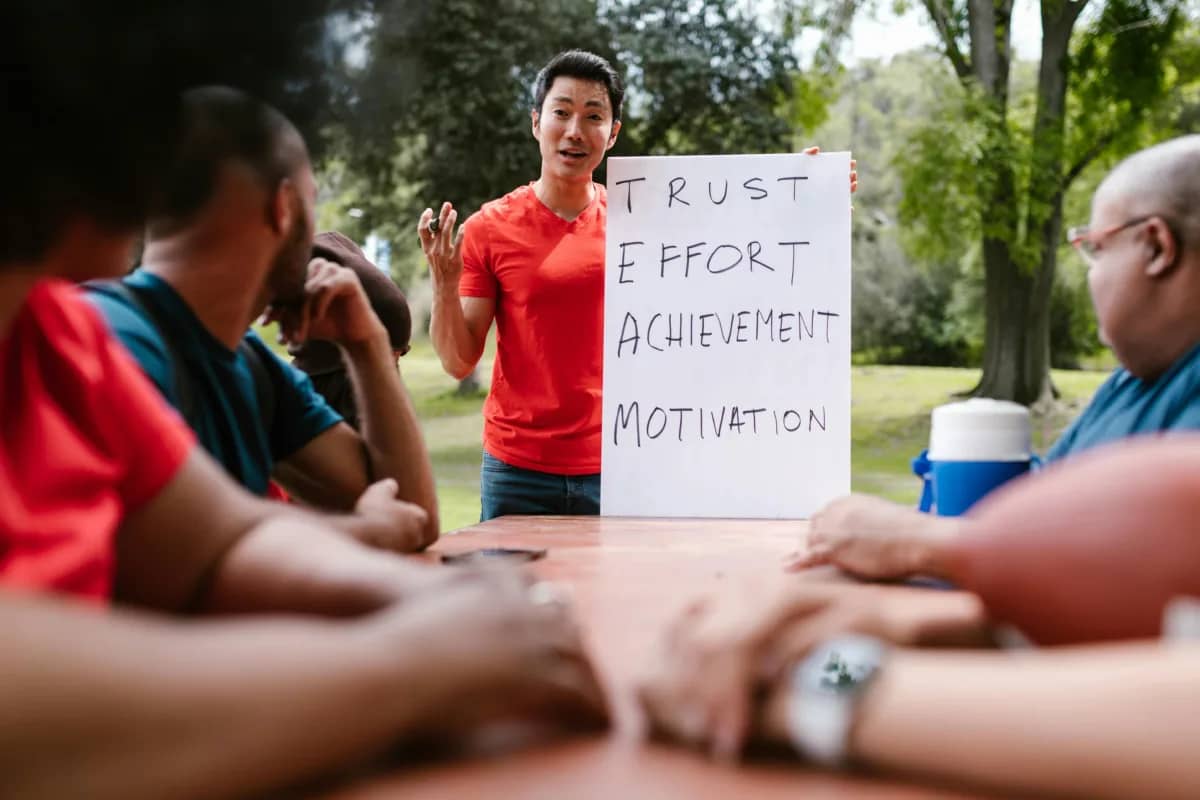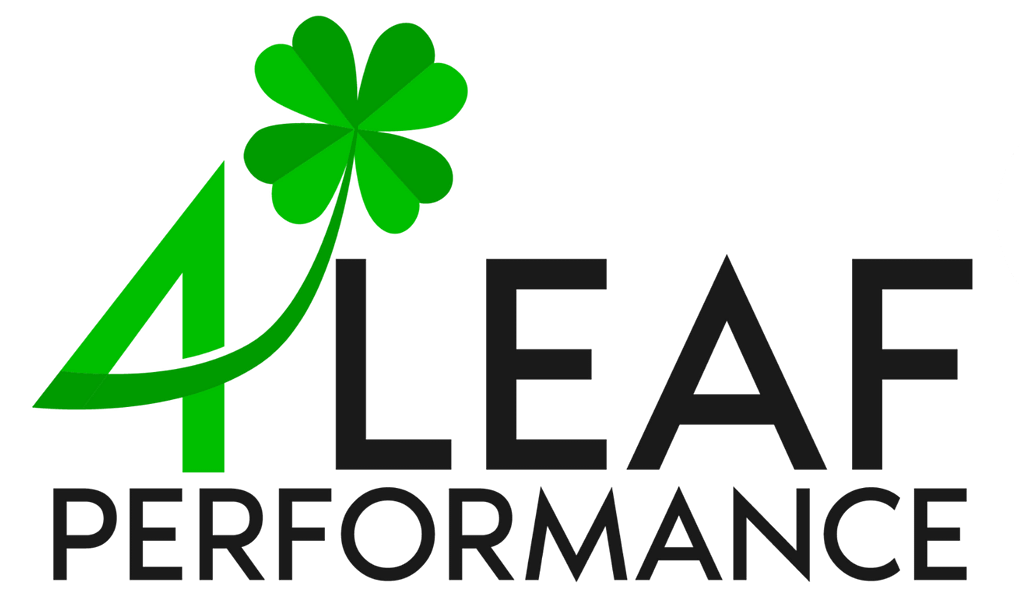This year, we’ve seen rapid technological advancements, shifting global dynamics, and increasing emphasis on social and environmental responsibilities. In this era, the definition of practical leadership qualities is also transforming. Today’s leaders must drive their organizations toward success and adapt to the changing needs and values of their workforce and society at large.
Traditional leadership models, characterized by a top-down approach and rigid hierarchies, are increasingly giving way to more dynamic, inclusive, and empathetic leadership styles. The modern leader must be a visionary, a motivator, an innovator, and a strategist, all while maintaining a strong ethical compass and fostering a culture of continuous learning and adaptability. Understanding these trends is essential for current and aspiring leaders who wish to stay ahead of the curve and lead their teams to new heights in an increasingly complex and interconnected world.
Emphasis on Emotional Intelligence
Emotional intelligence is one of the best leadership qualities that has gained significant traction in 2024. It refers to a leader’s ability to recognize, understand, and manage their own emotions, as well as the feelings of those around them.
It helps enhance team engagement, fosters a positive work environment, and ultimately boosts productivity. According to a survey from Gallup, managers account for at least 70% of variance in employee engagement scores across business units.
Leaders with high levels of emotional intelligence are adept at navigating the complexities of interpersonal relationships within their teams. They can effectively address conflicts, inspire and motivate their team members, and cultivate a sense of trust and respect. This, in turn, contributes to a more cohesive and motivated workforce aligned with the organization’s goals and values.
For leaders looking to develop and demonstrate emotional intelligence, here are some practical tips:
- Self-awareness: Cultivate a deep understanding of your emotional responses, strengths, weaknesses, and values. This self-awareness will enable you to manage your reactions and make more informed decisions.
- Empathy: Understand your team members’ perspectives, needs, and feelings. Empathy in leadership encourages open communication and builds strong, trust-based relationships.
- Active Listening: Engage in active listening by paying full attention to the speaker, understanding their message, responding thoughtfully, and remembering the information. This fosters a supportive environment where team members feel valued and heard.
- Effective Communication: Communicate your thoughts and feelings clearly and directly while being receptive to feedback. This includes recognizing the emotional undertones in conversations and responding appropriately.
- Conflict Resolution: Utilize emotional intelligence to navigate and resolve conflicts in a way that respects all parties’ feelings and perspectives, leading to more harmonious and productive outcomes.
Inclusivity and Diversity Leadership
Diverse leadership goes beyond mere representation; it involves actively fostering an environment where diverse voices are heard, valued, and integrated into decision-making processes. This approach to leadership recognizes the unique contributions of individuals from various backgrounds, including different cultures, genders, sexual orientations, ages, and abilities. By embracing diversity, leaders can tap into a broader range of perspectives, leading to more innovative solutions and improved problem-solving capabilities.

Diverse teams are better equipped to challenge conventional thinking, bring new ideas to the forefront, and approach challenges from multiple angles. This diversity of thought is critical in a rapidly changing global market, where adaptability and creativity are vital to staying competitive.
To foster an inclusive culture, leaders can implement several strategies:
- Promote Equity: Ensure all team members have equal access to opportunities, resources, and support, regardless of their background or identity.
- Encourage Diverse Perspectives: Actively seek out and encourage different viewpoints during discussions and decision-making processes. This can lead to more comprehensive and innovative solutions.
- Cultivate an Inclusive Environment: Create a workplace culture where everyone feels welcome, respected, and valued for their unique contributions. This involves addressing unconscious biases and fostering an environment of mutual respect.
- Implement Diversity Policies: Develop and enforce policies that support diversity and inclusion, such as flexible working arrangements, anti-discrimination policies, and diversity training programs.
- Lead by Example: Leaders should model inclusive behavior and commit to diversity. This sets the tone for the organization and encourages others to follow suit.
Remote and Hybrid Leadership Challenges
Remote and hybrid work environments have become a mainstay in 2024. This shift demands reevaluating traditional leadership qualities, as leaders are now tasked with the unique challenges of managing dispersed teams.
Effective leadership in remote and hybrid environments hinges on bridging physical distances with robust communication, trust, and a strong sense of community. Leaders must cultivate an environment where team members feel connected and engaged despite not sharing a physical workspace. This necessitates a blend of strategic vision, empathy, and technological savviness.
Leadership qualities needed to manage dispersed teams effectively include:
- Clear Communication: Transparent and frequent communication is paramount in remote settings. Leaders must ensure that team objectives, expectations, and feedback are conveyed clearly and that there are ample opportunities for two-way communication.
- Trust and Autonomy: One of the best leadership qualities in remote settings is the ability to trust team members and provide them with the autonomy to manage their work. This empowers individuals, fosters accountability, and increases job satisfaction and productivity.
- Cultural Cohesion: Maintaining a solid organizational culture is challenging in dispersed teams. Leaders must find innovative ways to instill and reinforce the organization’s values, mission, and identity, ensuring that team members feel a part of something larger than themselves.
- Leveraging Technology: Effective leaders must use digital tools and platforms to enhance team collaboration, project management, and social interaction. This includes familiarizing oneself with the latest technologies, seamlessly training the team, and integrating these tools into daily workflows.
Best practices for maintaining communication, collaboration, and culture in a remote setting also involve:
- Regular virtual check-ins.
- Creating virtual spaces for casual interactions.
- Hosting periodic in-person or hybrid team gatherings to strengthen bonds.
In essence, the leadership style suited to remote and hybrid work environments in 2024 emphasizes empathy, adaptability, and a forward-thinking approach to technology and team dynamics. Leaders who successfully navigate these challenges can harness the full potential of their dispersed teams, driving innovation and success in an increasingly digital and distributed world.
Agile Leadership
Agile leadership qualities include flexibility, adaptability, and a continuous focus on customer value and team empowerment. The essence of agile leadership lies in its ability to embrace change as a constant and to view challenges as opportunities for growth and innovation.
Agile leaders are known for their capacity to pivot quickly in response to new information, to foster a culture of innovation and experimentation, and to encourage a mindset of learning and development within their teams.
Aspects of agile leadership include:
- Flexibility and Adaptability: One of the best leadership qualities in the agile framework is the ability to adapt strategies, goals, and processes as circumstances evolve. This requires an open-minded approach and a willingness to experiment and learn from outcomes, whether they are successes or failures.
- Empowering Teams: Agile leaders delegate authority and encourage decision-making at all levels of the organization. By empowering team members, leaders foster a sense of ownership and accountability, which can lead to higher engagement and productivity.
- Customer-Centric Approach: Agile leadership emphasizes the importance of delivering value to customers continuously. Leaders in this space work closely with their teams to understand customer needs and ensure that the organization’s efforts effectively align with meeting those needs.
- Collaborative Environment: Collaboration is a cornerstone of the agile methodology. Agile leaders facilitate cross-functional teamwork and open communication, leveraging various perspectives and expertise to achieve the best outcomes.
- Commitment to Learning: An agile leadership style commits to continuous learning and improvement. Leaders and their teams are encouraged to reflect on their work, learn from experiences, and apply those lessons to future challenges.
Focus on Sustainability and Ethical Leadership
The increasing importance of sustainability and ethics in corporate leadership marks a growing recognition of businesses’ role in addressing environmental challenges, social inequalities, and governance issues. Leaders are now expected to drive financial success while contributing positively to society and the planet.
Sustainability in leadership involves integrating environmental, social, and economic considerations into decision-making processes, aiming to create long-term value for both the organization and the wider community.
Ethical leadership, on the other hand, focuses on leading with integrity, transparency, and a commitment to doing what is right, even in the face of difficult choices.
Leaders who prioritize sustainability and ethics often exhibit the following qualities:
- Visionary Thinking: Leaders focusing on sustainability are visionary, looking beyond short-term gains to consider the long-term impacts of their decisions on the environment and society.
- Integrity and Transparency: Ethical leaders operate with a high degree of integrity and transparency, building trust among stakeholders, including employees, customers, and the community.
- Inclusivity: A commitment to ethical leadership involves fostering inclusivity, ensuring that diverse perspectives are considered and that the organization’s practices reflect its values.
- Responsibility: Sustainable and ethical leaders feel a deep sense of responsibility toward the well-being of their employees, society, and the planet. They are proactive in addressing social and environmental issues through their business practices.
- Collaboration: Recognizing that sustainability challenges are complex and multifaceted, these leaders often seek collaborative solutions, partnering with other organizations, governments, and civil society to drive positive change.
To drive sustainable practices and ethical decision-making within their organizations, leaders can:
- Implement sustainable business practices that reduce environmental impact, such as energy efficiency measures, sustainable sourcing, and waste reduction.
- Ensure fair labor practices and equal opportunities within the organization and its supply chain.
- Engage in corporate social responsibility initiatives that contribute positively to the community and environment.
- Foster a culture of integrity and accountability, rewarding ethical behavior and promptly addressing unethical actions.

Leveraging Technology for Leadership
Technology has become an indispensable tool in the modern leader’s arsenal, from enhancing communication and decision-making to enabling more effective team management and performance analysis.
Leaders who effectively leverage technology can significantly enhance their leadership effectiveness and drive superior team performance. They use digital tools and platforms to streamline operations, foster collaboration, and facilitate team innovation.
Key areas where technology enhances leadership effectiveness include:
- Communication and Collaboration Tools: Platforms like Slack, Microsoft Teams, and Zoom have become essential for maintaining clear and consistent communication, especially in remote and hybrid work environments. Effective leaders utilize these tools to keep their teams connected, engaged, and aligned with organizational goals.
- Project and Task Management Software: Tools such as Asana, Trello, and Jira help leaders organize tasks, track progress, and manage projects efficiently. These platforms enable transparency and accountability, ensuring team members know their responsibilities and deadlines.
- Data Analytics and Performance Metrics: Advanced data analytics tools enable leaders to make informed decisions based on real-time data. Leaders can monitor key performance indicators (KPIs), gather insights into team dynamics, and identify areas for improvement.
- Learning and Development Platforms: With the continuous evolution of technology, fostering a learning culture is crucial. Leaders leverage online learning platforms like LinkedIn Learning, Coursera, and Udemy to encourage ongoing skill development and adaptability among their teams.
- Innovation and Creativity Software: Tools that support brainstorming, mind mapping, and collaborative innovation, such as Miro or MindMeister, are used by leaders to harness the creative potential of their teams, facilitating the generation of new ideas and solutions.
Continuous Learning and Development
In an era characterized by swift technological advancements, shifting market dynamics, and evolving business models, the ability to learn and adapt has become crucial for leaders to navigate these complexities successfully.
Continuous learning in leadership is not just about acquiring new skills or knowledge; it’s about fostering a growth mindset that embraces challenges, persists in the face of setbacks, sees effort as a path to mastery, learns from criticism, and finds lessons and inspiration in the success of others. This mindset is essential for leaders to cultivate within themselves and their teams to ensure resilience, adaptability, and sustained innovation.
Leaders can embody and promote continuous learning and development through various approaches:
- Personal Development: Committing to their personal growth, leaders can stay ahead of industry trends, refine their leadership skills, and broaden their perspectives. This might involve pursuing formal education, attending workshops and conferences, or engaging in self-directed learning.
- Fostering a Learning Culture: Creating an organizational culture that values curiosity, experimentation, and learning from failure encourages team members to seek learning opportunities and share their knowledge and insights.
- Mentorship and Coaching: 63% of millennials believe their employers aren’t fully developing them as leaders for management positions. Leaders can facilitate learning by acting as mentors or coaches, providing guidance, feedback, and support to help team members develop their skills and careers.
- Leveraging Learning Technologies: Utilizing online platforms and digital tools to provide accessible learning resources and training programs enables team members to learn at their own pace and according to their individual needs.
- Encouraging Cross-Functional Collaboration: Leaders can create a rich learning environment where diverse skills and perspectives are shared and integrated by promoting collaboration across different departments or teams.
Evolving Leadership Skills for Tomorrow’s Challenges
The modern leader is not just a figure of authority but a visionary, a facilitator, an innovator, and, most importantly, a learner who is adaptable and resilient in the face of change. The qualities that define effective leadership in 2024 revolve around the ability to connect with others on a human level, to foster a culture of inclusion and collaboration, and to lead with purpose and integrity. These leadership qualities drive individual and organizational success and contribute to improving society and the global community.

Are you ready to embrace these modern leadership trends and cultivate your leadership potential? 4 Leaf Performance’s Leadership Development Program is designed to equip you with the skills, knowledge, and mindset needed to navigate the complexities of leadership in 2024 and beyond. Our comprehensive program covers all the key trends discussed, from emotional intelligence and inclusivity to technology and continuous learning, ensuring you are well-prepared to lead your team to success in this dynamic environment.
Join us at 4 Leaf Performance, and embark on a personal and professional growth journey that will transform you into the leader you aspire to be. Whether you’re looking to enhance your existing leadership skills or develop new ones, our program offers practical insights, hands-on learning experiences, and personalized coaching to help you achieve your goals.
Don’t let the rapidly changing world catch you off guard. Equip yourself with the tools and techniques to lead effectively in 2024 and positively impact your organization and beyond. Let us help you unlock your full leadership potential. Take the first step towards becoming a modern leader today!



